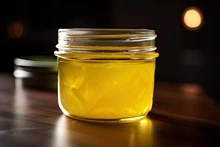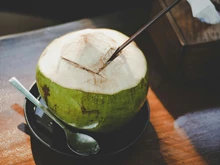
Due to the sugars in oranges, they have more calories and carbohydrates, but lemons have more protein, lipids, and fiber. The levels of vitamin C in both are comparable. Oranges are higher in vitamins and minerals than other fruits, including vitamin A, vitamin E, vitamins B1, B2, B3, B5, and B9, as well as calcium, potassium, magnesium, copper, and zinc. Lemons, on the other hand, have higher levels of vitamin B6, iron, and phosphorus than other fruits.
Both have anti-inflammatory, anti-diabetic, anti-cancer, and antibacterial properties.
When used correctly, both oranges and lemons can be highly beneficial, and the choice is based on the context and personal preference.
Introduction
When we think of fruits that are high in vitamin C, we often think of oranges and lemons. Both are citrus fruits from the Rutaceae family and the Citrus genus, and both are hybrids. Oranges are thought to be a hybrid of pomelo and mandarin, whilst lemons are said to be a hybrid of sour orange and citron, according to genetic analysis. The term "orange" in this article refers to the sweet orange or Citrus sinensis, which is the most common orange species.
Nutrition Differences
Due to the sugar in oranges, they have more calories and carbs, whereas lemons have more protein, lipids, and fiber. Both fruits are naturally cholesterol-free. When it comes to the glycemic index, both oranges and lemons, as well as the majority of citrus fruits, are considered low glycemic index foods.
Although the glycemic index of lemons has yet to be determined, raw oranges from Canada have a glycemic index of 40. Full texts on the glycemic impact of orange and lemon can be found here.
The serving size of an orange is one fruit weighing around 131g. Lemon has a much lower serving size, weighing only 58 grams. Lemons are the better pick out of these two fruits if you're on a low-carb or low-calorie diet. For a low-fat diet, orange is the best option.
Acidity
Lemons have a sourer flavor than oranges. This difference in flavor is determined by the acidity of the fruit. The acidity of lemon varieties ranges from 5 to 7 percent, owing to the citric acid concentration, compared to 1 percent in oranges. The pH of oranges is estimated to be between 3, 69, and 4, 34, while the pH of lemons is between 2 and 2, 6. Lemon juice has a pH that is similar to that of a lemon. Lemons are therefore more acidic than oranges.
The citric acid in oranges and lemons turns alkaline in the body once they have been fully ingested and metabolized. Oranges are more alkaline-forming when measured by the potential renal acid load (PRAL).
Vitamins
Oranges are higher in vitamin A, vitamin E, and vitamins B1, B2, B3, B5, and B9 than other fruits. Vitamin B6 is the only vitamin that lemons have more of.
Vitamin D, vitamin K, and vitamin B12 are all lacking in oranges and lemons.
Vitamin C
Citrus fruits are high in vitamin C, which is one of the most important nutrients they contain. Lemons and oranges both have almost the same amount of vitamin C, with the orange having slightly more. The zests or peels of oranges and lemons are higher in vitamin C.
Raw lemon juice, on the other hand, is higher in vitamin C than orange juice.
Minerals
In the mineral category, oranges also come out on top. They have higher calcium, potassium, magnesium, copper, and zinc contents. Lemons, on the other hand, are significantly richer in iron and phosphorus. Lemons have sodium as well, although oranges do not.
Conclusion
Both juices include huge quantities of vitamins but orange juice contains twice as many minerals and vitamins as lemon juice.











